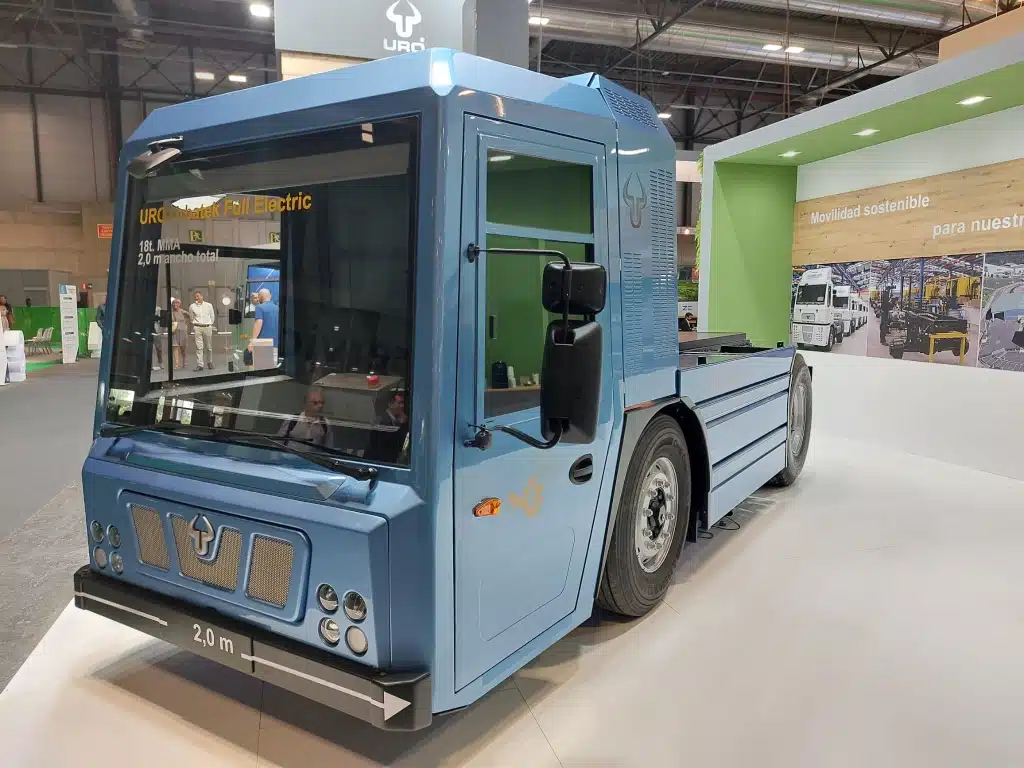Electric and sustainable trucks: the revolution of future logistics transport

The logistics transport industry is undergoing a significant transformation thanks to the advent of electric and sustainable trucks. This advancement not only represents a response to environmental demands but also an opportunity to redefine efficiency in the supply of goods. With the growing awareness of sustainability and the push from innovative technologies, electric trucks are positioned as the forefront of a future where responsible mobility and emission reduction are essential for the logistics of tomorrow.
The transition towards electric and sustainable trucks is marking a new era in logistics transport. Driven by the need to reduce carbon emissions and improve operational efficiency, these vehicles become a key solution to face the environmental challenges of the present and the future. This article examines the impact of this revolution in the logistics sector, analyzing benefits, challenges, and the role of governments in the adoption of clean technologies.
The evolution towards electric trucks
The movement towards electric vehicles in logistics is the result of increasing pressure from environmental regulations and a greater awareness of the need for sustainable practices. Projections estimate that by the year 2030, more than 20% of global freight transport will be electric, reflecting a significant shift in the way goods are moved.
Regulations and standards
The European Union has set ambitious goals requiring truck manufacturers to reduce carbon emissions by 45% by 2030 and by 90% by 2040. These targets not only accelerate the adoption of electric vehicles but also promote innovation in cleaner and more efficient technologies within the logistics sector.
Benefits of electric trucks
Electric trucks offer multiple benefits for the logistics sector. Firstly, they contribute to the reduction of carbon emissions. By replacing fossil fuels with electric energy, they decrease the emissions of harmful gases, thus improving air quality.
Operational efficiency and cost reduction
Another highlighted aspect is their operational efficiency. Electric trucks have lower operating costs compared to diesel vehicles, thanks to reduced fuel and maintenance expenses. This translates into significant savings for companies that implement this technology.
Global implementation of electric trucks
The success in the implementation of electric trucks is observed in various cities and countries. In 2024, 91 electric buses were delivered to Sweden and Belgium, marking a milestone in sustainable mobility in the region. These vehicles contribute to the commitment of nations towards cleaner logistics.
Challenges in adoption
Despite the advances, there are significant challenges that hinder the transition towards electric trucks. The initial investment is considerably higher than that of traditional diesel vehicles, although studies predict that starting in 2025, total costs of electric trucks are expected to be more competitive in various applications.
Infrastructure and battery technology
The lack of an adequate charging station network also presents a significant challenge, as it limits the operability of these vehicles, especially on long routes. The expansion of this infrastructure is crucial to facilitate the mass adoption of electric trucks in logistics.
Advances in technology
Despite current limitations in range and load capacity compared to internal combustion vehicles, research and development continue to advance. Governments are key players in this promotion, implementing tax incentives, investments in infrastructure, and environmental regulations that encourage the electrification of freight transport.
The future of logistics transport
Over time, it is expected that the acquisition costs of electric trucks will decrease, the charging infrastructure will expand, and battery technologies will improve, allowing for a broader and more effective adoption. This transition represents an irreversible trend that is redefining the transport of goods in the coming decades.
Electric trucks are not just a trend; they are the symbol of a future where logistics transport is oriented towards more responsible and environmentally friendly practices. With active collaboration between the private sector and governments, the revolution of sustainable transport has already begun.
The adoption of electric trucks marks a milestone in the transformation of the logistics sector, driven by the pressure of environmental regulations and the global commitment to sustainability. This change not only responds to an urgent need to reduce carbon emissions but also represents an innovative technological transition that redefines operational efficiency.
As logistics providers adopt clean technologies, the capacity to operate electric fleets becomes a determining factor for success in the market. The reduction in operating costs due to lower energy consumption and maintenance positions electric trucks as a viable alternative to traditional diesel trucks.
Projections indicate that by the year 2030, more than 20% of global freight transport will be electric, a reflection of the growing environmental awareness and pressure from governments and organizations worldwide. For example, the European Union has established clear targets that require manufacturers to drastically reduce emissions, thereby accelerating the development of more efficient solutions.
While challenges such as charging infrastructure and higher initial costs remain, the evolution of battery technologies and increased investments in infrastructure are critical steps towards mass adoption. Policies that promote tax incentives and public-private investment are essential to overcome these obstacles.
In summary, the revolution of electric trucks in logistics transport is an irreversible trend. As the industry adapts to a more sustainable paradigm, the future of goods transport is shaping up to be a more efficient and ecological ecosystem, aligned with global objectives for emission reduction and environmental protection.
